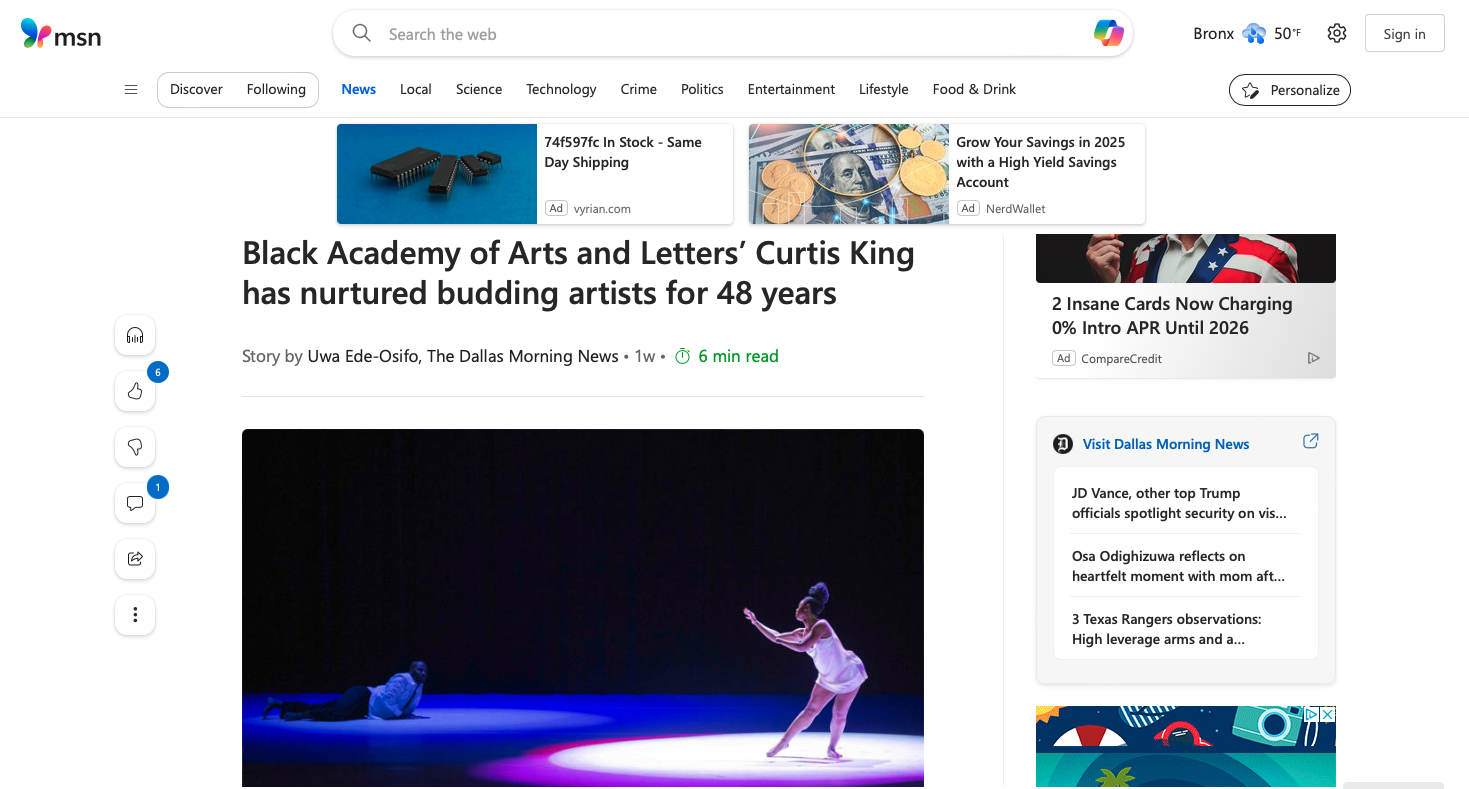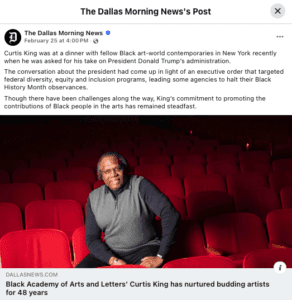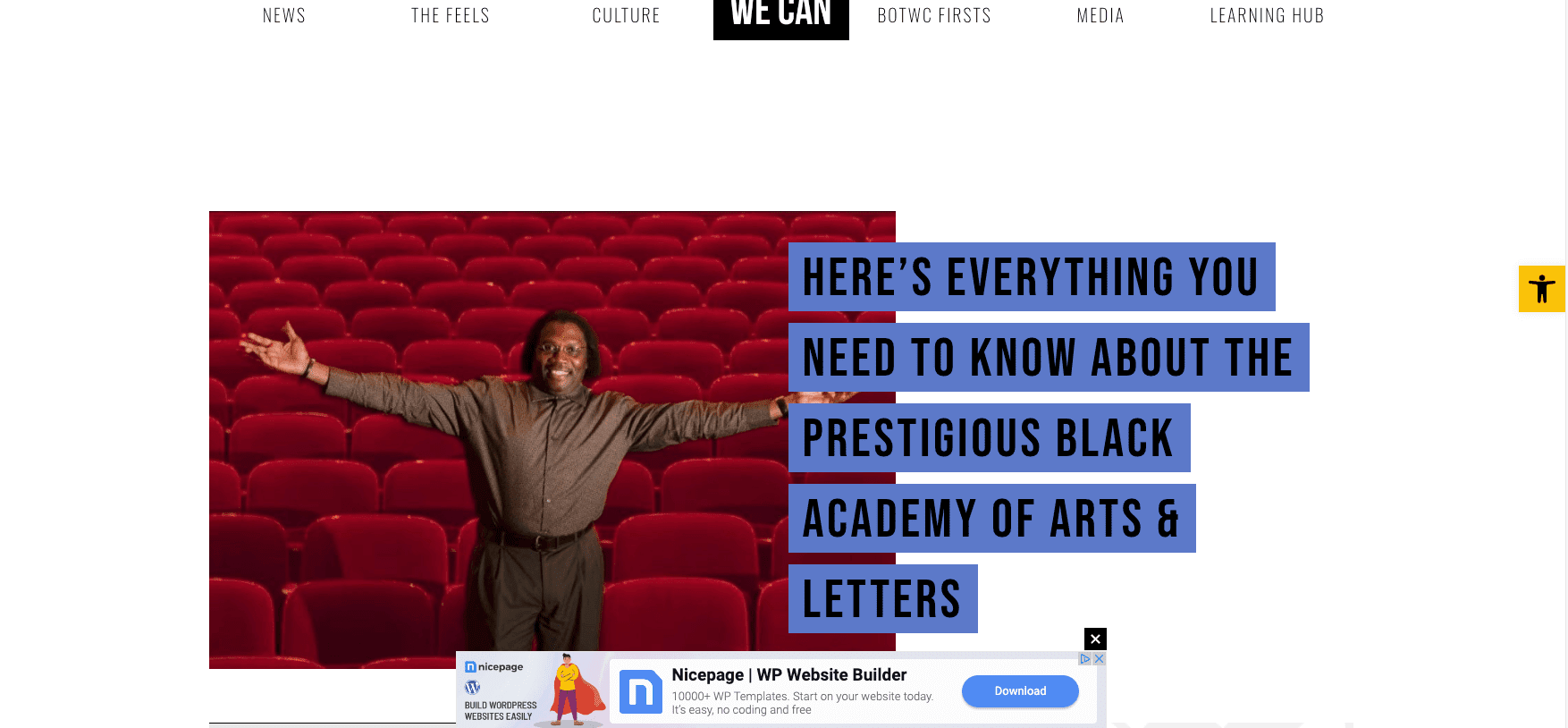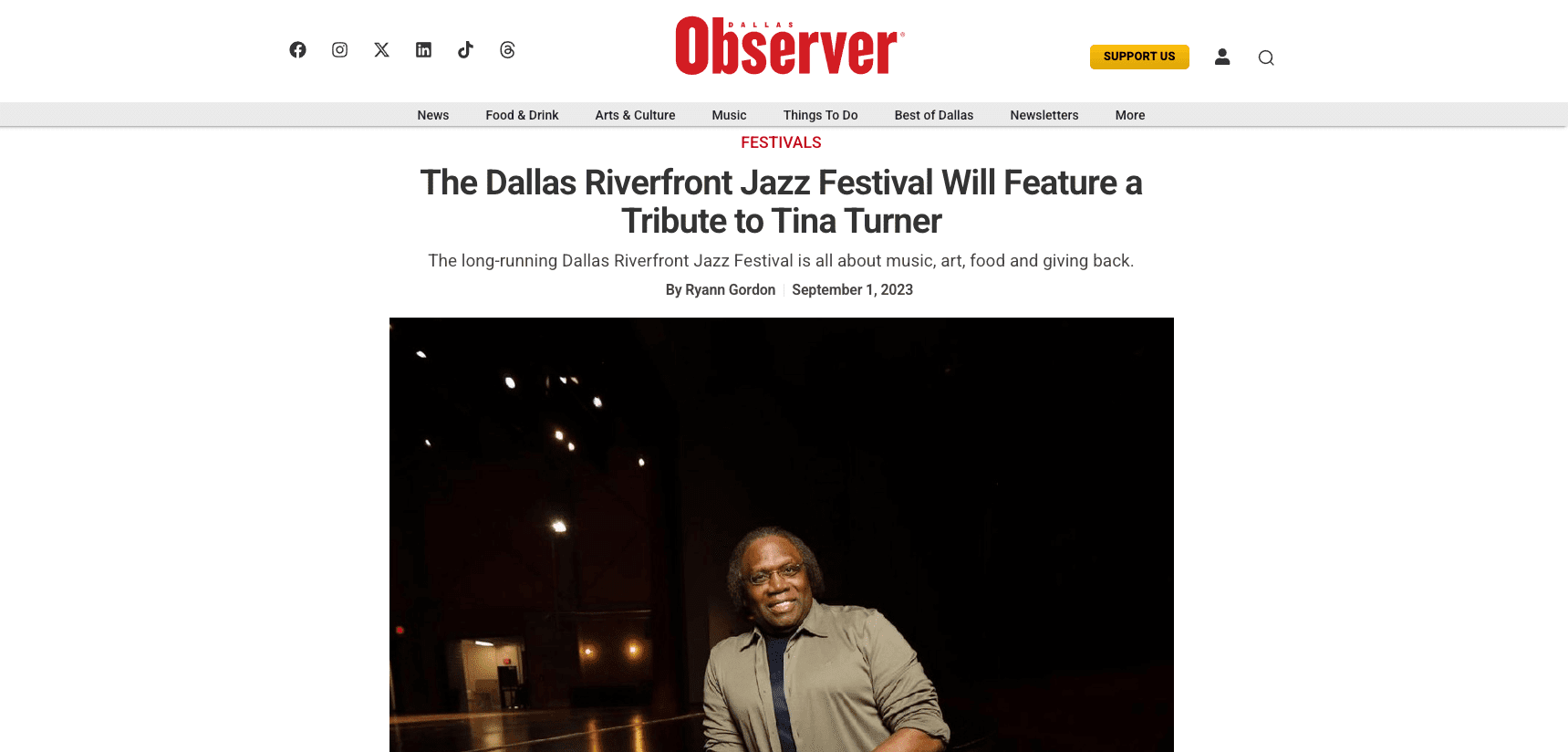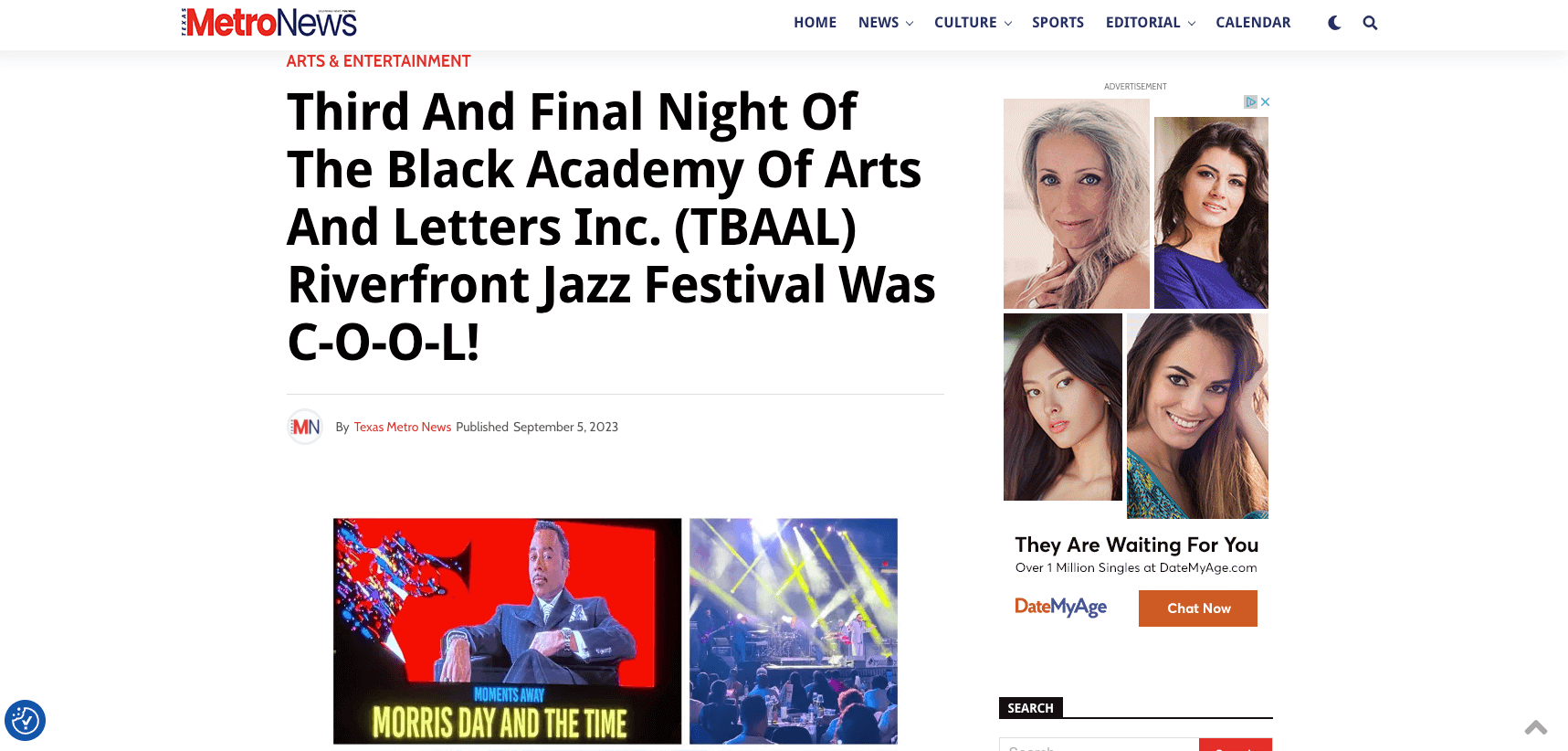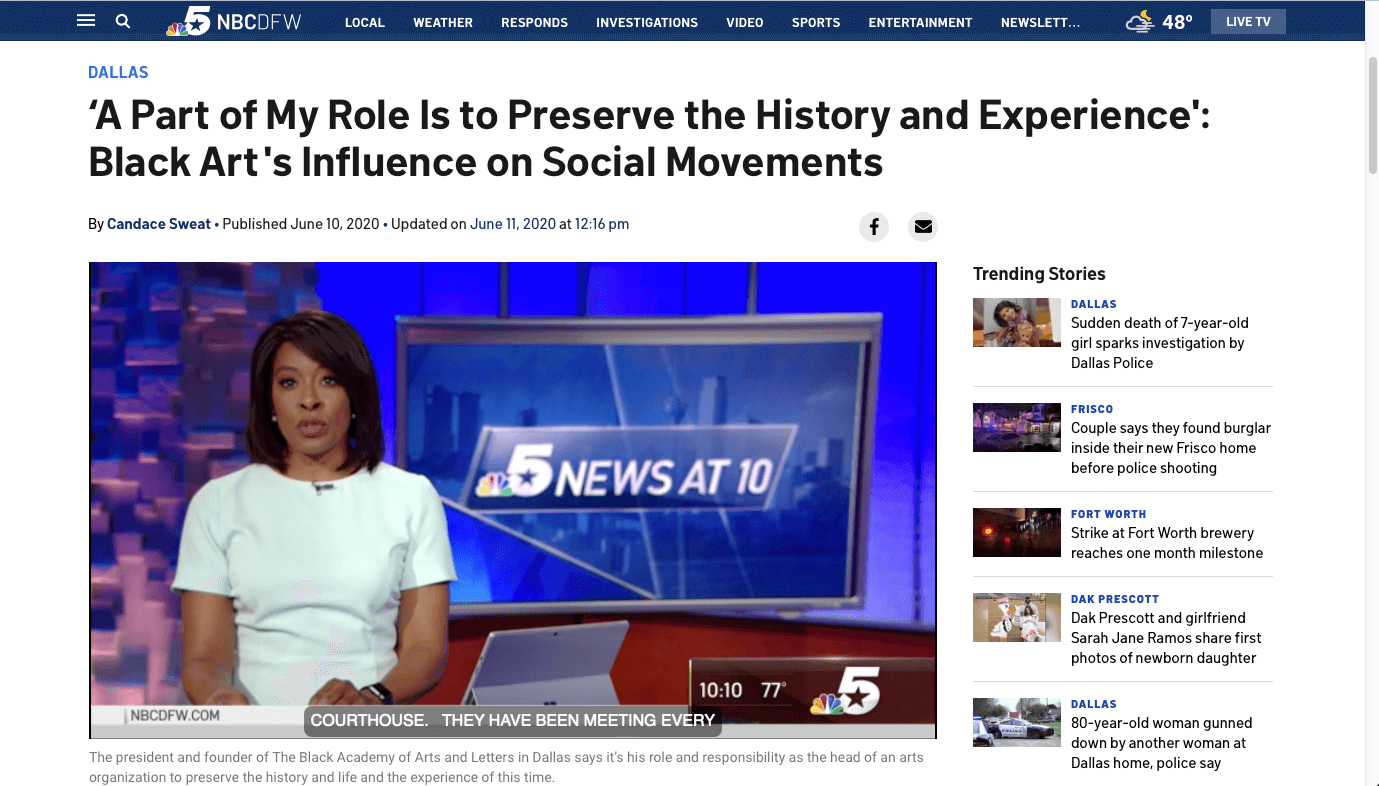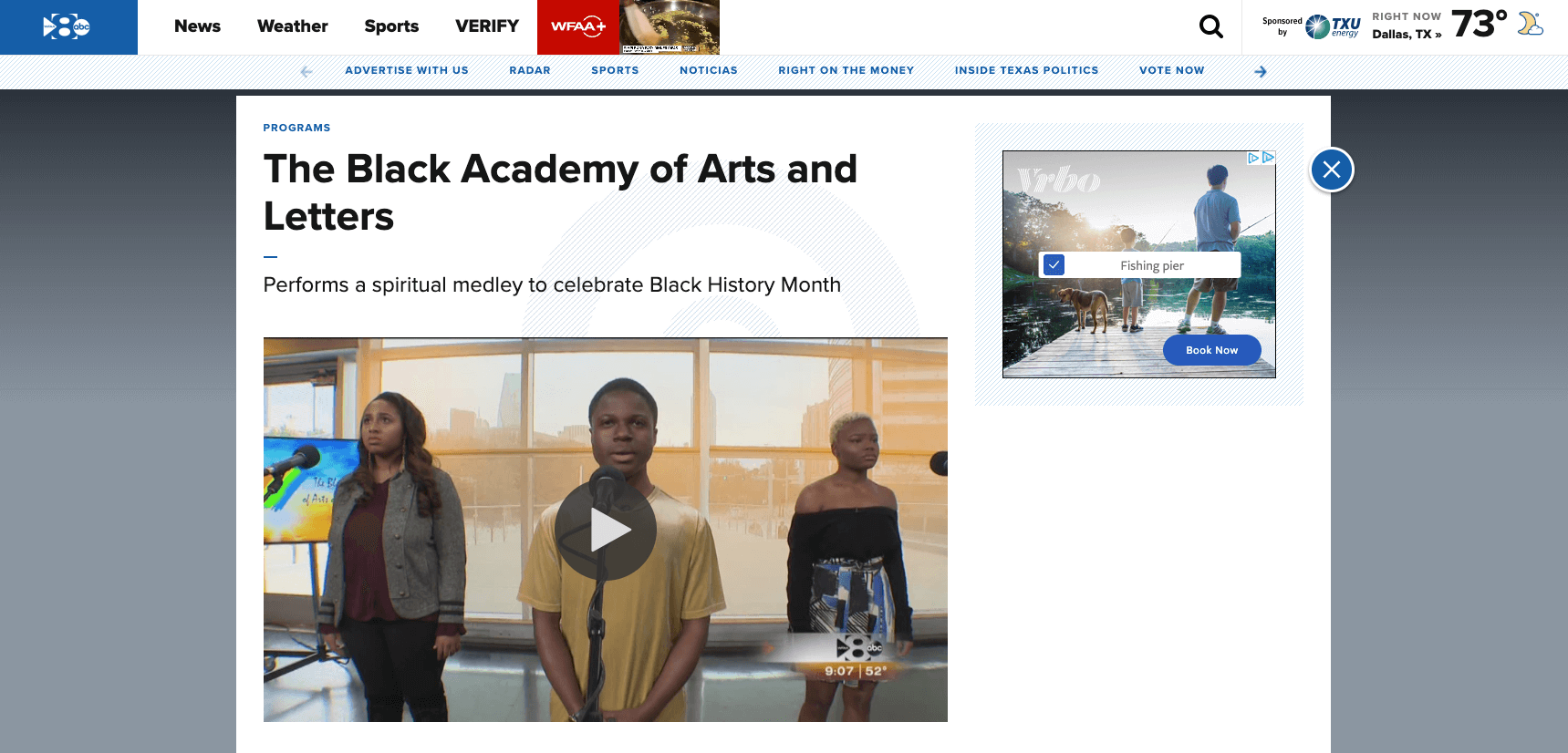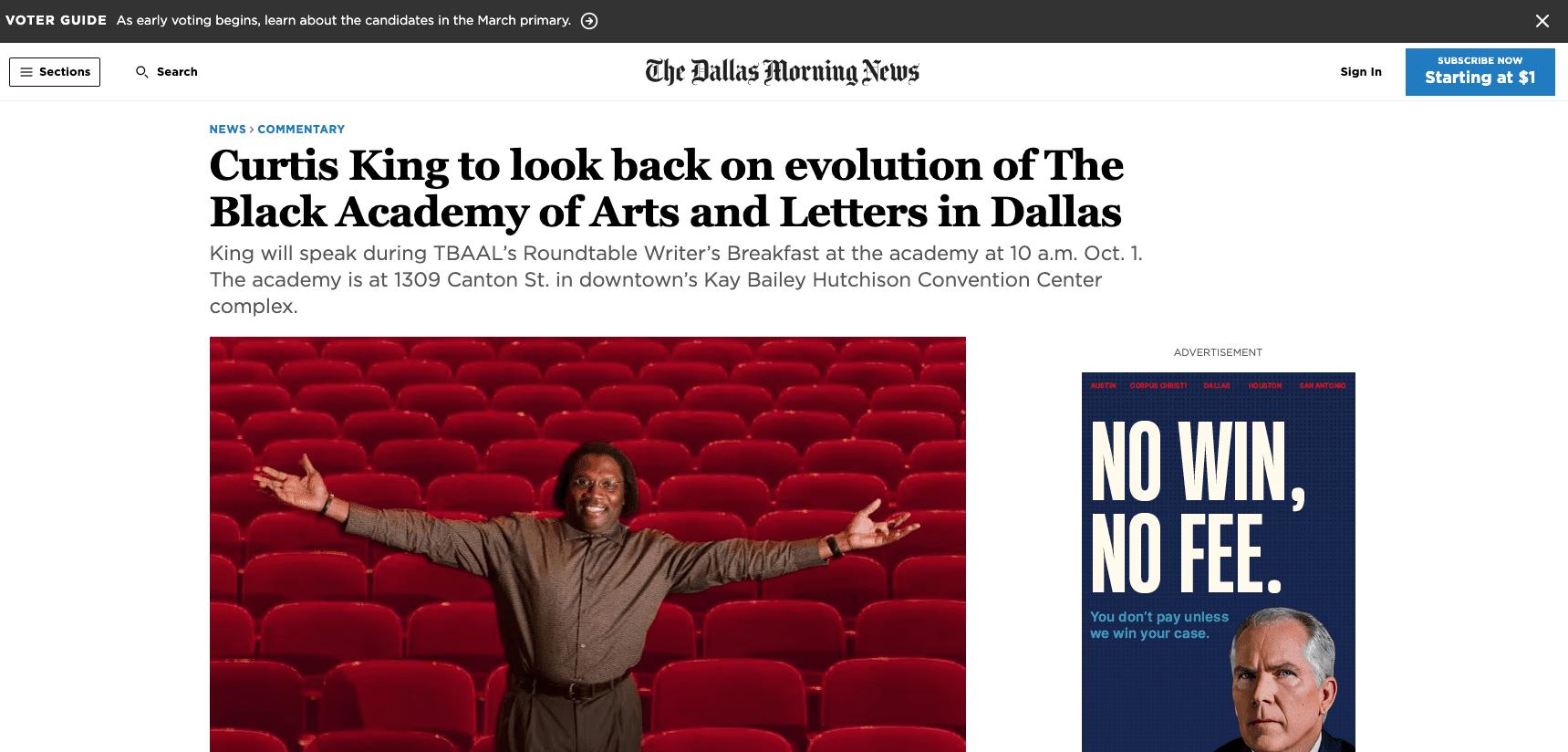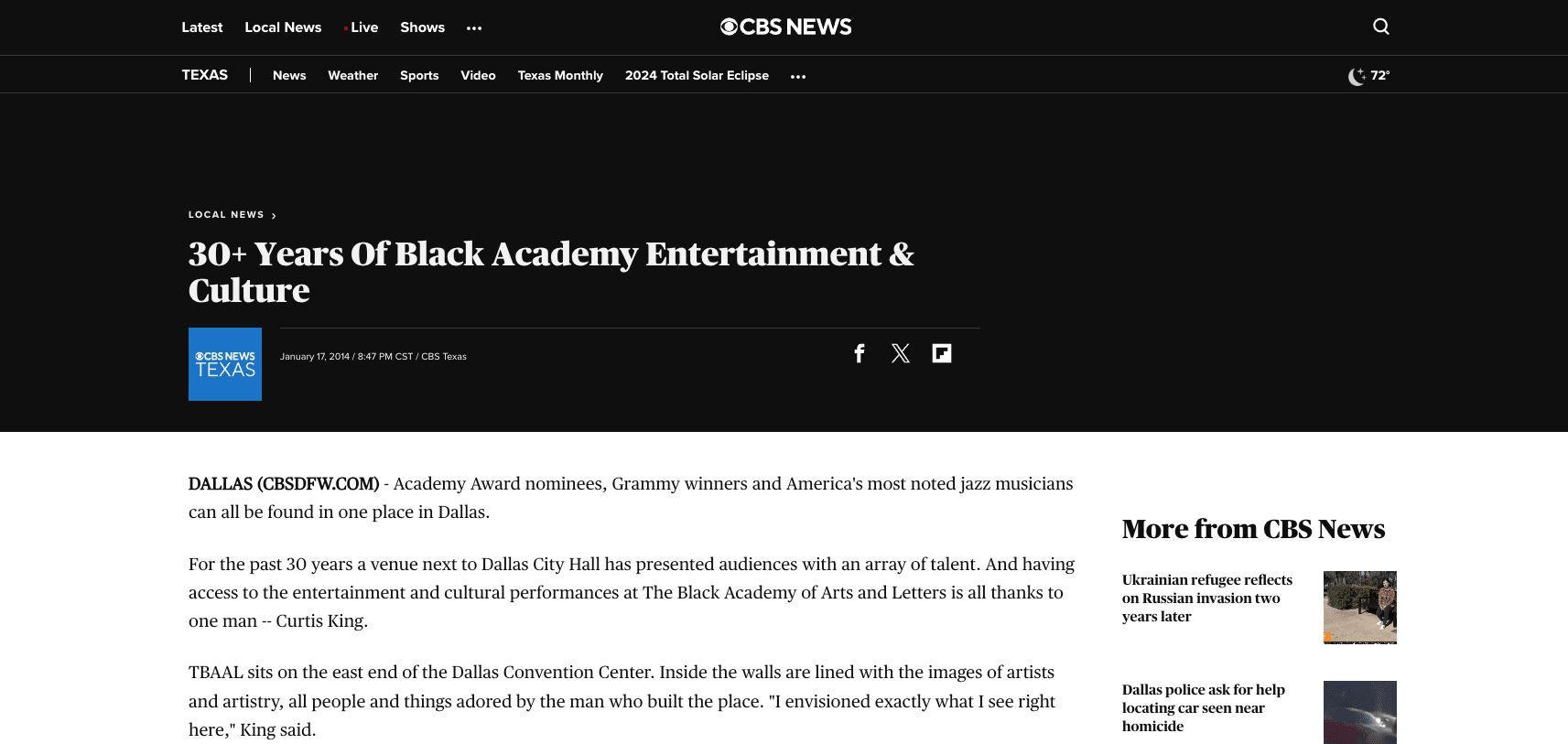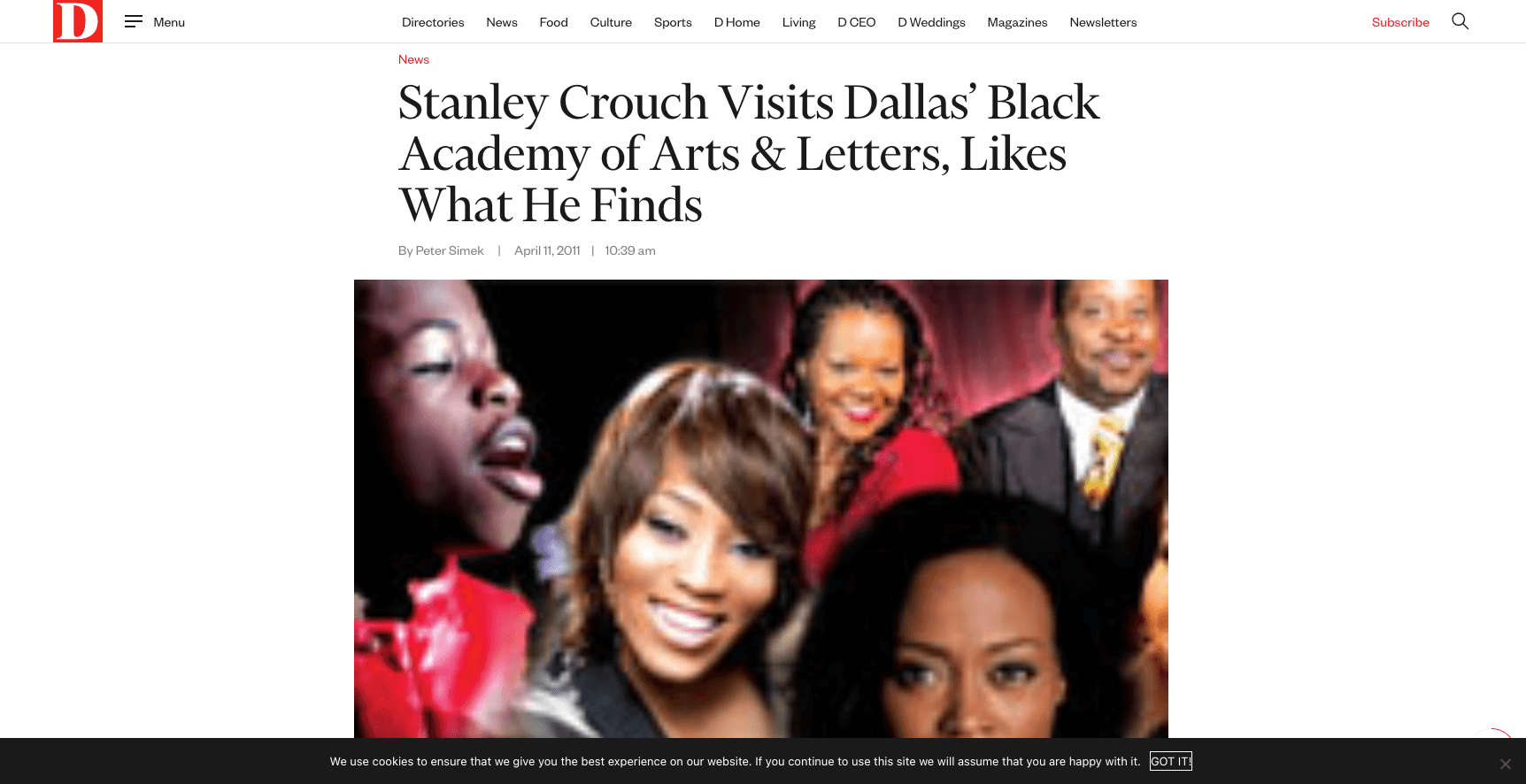Over four decades, THE BLACK ACADEMY OF ARTS AND LETTERS has appeared in countless publications and has been featured on numerous television and radio programs and on hundreds of digital platforms throughout America and in various parts of the world. Below are a smidgeon number of news stories and clippings highlighting TBAAL’s work in America’s cultural arts. For more information about the institution’s history, Click Here.
A BLACK ACADEMY WITH CONTENT AND CHARACTER BY STANLEY CROUCH
Stanley Lawrence Crouch (December 14, 1945 – September 16, 2020) was a renowned and respected national American poet, music and cultural critic, syndicated columnist, novelist, and biographer. A (John D. and Catherine T.) MacArthur “Genius Grant” Fellowship recipient from The MacArthur Foundation, Crouch was known for his jazz criticism and his 2000 novel “Don’t the Moon Look Lonesome?”
When something as remarkable as The Black Academy of Arts and Letters comes forward, it is more than what is called “Hell to the captain.” Founded and led by Curtis King for 38 years, his academy holds all precedents of academic seriousness and expands upon ethnic particulars at such an irresponsible time. There should be elements that separate its work and scholarship from the vulgar and mercilessly material concerns based almost entirely on advertising and the success of products, human or not.
Today black audiences are no less vulnerable to the usually crowning achievement of profit. Anyone or anything that racks up the dollars will be considered good or excellent. Neither is important in the context of media smothering, where every kind of victory is assessed in terms of winning, crushing, playfully distorting or, at the end, playfully dehumanizing.
In this period of Tyler Perry’s extreme successes, many dislike his Aunt Madea character, because they think Perry’s dressing drag is an insult to black actresses — even though the spoiled black nationalist egg cracked for black painters to be politically correct and paint portraits of Aunt Jemima coming off the pancake box with her facial lines being angry.
The actress Juanita Moore recently died at 99, but little notice was made of her demise because she had no longterm success. In 1960, Moore was nominated for best supporting actress in a Lana Turner vehicle. Moore never again rose that high, even though her most famous role was of a black servant burdened by her “high yellow” daughter who not only could “pass” for white, but does.
In this Tyler Perry era, it is hard for many to remember how it was — what was offered and what was not. As Harry Belafonte points out, when he and Sidney Poitier started more than 50 years ago, “our goal was to get good parts, human roles, motion beyond the buffoons or the day.” A review of Juanita Moore’s acting has the revelation that her character’s death represented a part of the black community usually ignored. That review looks closely at the film and comes to conclusions quite different from what was said about Douglas Sirk’s film when it arrived and made “big bank”:“‘Imitation of Life’ ends with Moore’s Annie Johnson being dramatically hoisted into a hearse as an entire black community mourns her passing. It’s a valiant, heartbreaking moment, but if you dig beneath the scene’s giddy surface sheen, you may see that Sirk is asking for an instant moratorium on films that further subjugate the role of AfricanAmericans in art and the world itself.”
In our contemporary times, it is no longer an obstacle to being a success, but might be an asset if one listens to farright wing criticisms of Barack Obama. We would “learn” that being a “halfcaste,” as they were formerly called, can make one vastly appealing — to whites and others making up the electorate. But there is now a sticky piece of business laid on all possible things, a simple hustle purporting to bring about a grand moment in American democracy, played out in the workplace. It is called “diversity,” and is actually about hiring practices that “should” reflect demographics.
But truly superior talents are only interested in being recognized for what they are, which is why black heavyweight boxing champion Jack Johnson was so troubling to the bigoted establishment when he faced and beat down the “white hope” of the time in 1910, Jim Jeffries. Johnson had beaten everyone blocking his way to the crown, and Jeffries, the retired champion, was selected for the job of putting Black Jack in his place. Johnson’s place was found in the ring, as Jeffries was helpless at his feet, and the dinge, the golliwog, the darkie —any name other than a man — was written in the sports sections. All that is good and has been better because Oprah Winfrey has allowed herself and those she believes in to move on up the line of bringing about “an instant moratorium on films that further subjugate the role of African Americans in art and the world itself.”
The work of The Black Academy of Arts and Letters continues on the same path, because a partnership has started with North Texas University, which will keep records of all the events and gifts and correspondence with imminent figures in the worlds of art, scholarship and performance. It is always meaningful to the nation when any ethnic group seeks to address its soul and how that soul has maintained enough compassion to express uncontrived identity and meet the identity of the individual. Those are the nuances we seek to experience, both real, deeply moving and capable of touching the domestic and international.
© 2015 Stanley Crouch Distributed by King Features Syndicate, Inc.
(FROM KING FEATURES SYNDICATE, 300 W. 57TH ST., 15TH FLOOR, NEW YORK, NY 10019 CUSTOMER SERVICE: (800) 7087311 EXT. 236 AMERICAN PERSPECTIVES RELEASE ON OR AFTER THURSDAY, FEB. 5, 2015)
TBAAL Video:
Dallas City Council
TBAAL Video:
Civil Rights Concert
TBAAL Video:
Riverfront Jazz Festival
TBAAL Video:
Regina Taylor
TBAAL Video:
Christmas/Kwanzaa Concert
TBAAL Video:
Summer Arts Institute
